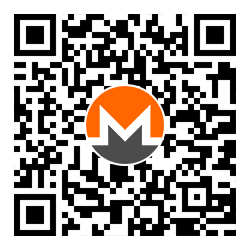
Recent Monero related buzz across the interwebs is the news that darknet market Oasis has abruptly gone offline. The general consensus seems to be that this was an exit scam. I think that's likely the case, although given the nature of what kind of business Oasis catered to, you can't discount seizure by law enforcement at this point. Absent any gloating press release from the FBI in the next few days however, we can probably assume that someone is laughing all the way to the bank right now.
There were also reports that AlphaBay went radio silent for a while. Apparently they have since returned, or are at least reachable intermittently. The reddit community is understandably apprehensive about what AlphaBay may be up to, given the recent evidence that whomever administered Oasis has likely absconded with a lot of cash.
While that's understandable, it really shouldn't be their primary concern at this point. Considering the illicit nature of AlphaBay, I would be very apprehensive to go near it at all for a while, were it to go down and then slowly come back online with any sort of 'everything's hunky-dory business as usual' message. It would not be uncharacteristic for law enforcement to take over administration of such a site as quickly as possible after seizing it, in order to ensnare as many unsuspecting patrons as possible. Of course, it's far more likely that the complications really are just technical complications. The Tor network isn't exactly known for it's reliability. Nonetheless, I would advise caution in this sort of situation. Let someone else test the water first, eh?
What I find more interesting than all of this is the tone in which these events, and others such as the Monero third party wallet vulnerability nonsense, are being covered by a lot of bloggers out there. Just click through to the article which I linked in the previous sentence and you'll see what I mean. Why is everything being spun as if it's a flaw with the cryptocurrency itself?
A shady deepweb exchange vanishes with probably a few million Dollars worth of Monero and BTC so you definitely shouldn't trust Monero.
The majority of 3rd party wallet services for Monero were running some crappy code that left them vulnerable to attack, so Monero definitely isn't secure.
Web wallet service MyMonero was unresponsive for a few days, so Monero is definitely nothing but a scam.
In fact you all should probably just look at Monero like it has herpes and stick to Bitcoin instead, folks. Trust me, I am a blogger and have no ulterior motive whatsoever.
So much hate out there toward Monero, don't you think? The paranoid, tin-foil-hat-5,000-lbs-of-beef-jerky-in-a-bunker side of me thinks that a well entrenched faction of the cryptocurrency community must be feeling very threatened by Monero right now. I don't want to point any fingers, but I have been saying for a while that all it would take for Bitcoin to cough up its entire market share of discrete transactions would be a couple of high profile cases of deepweb exchanges and/or their patrons being tracked down and prosecuted with the help of any of these emerging Bitcoin blockchain tracking services. -Something which Monero is currently immune to by design. Just puttin' that out there...
Finally, regarding this wallet business:
First, MyMonero is up and running at the time that I am writing this. They do have a message banner warning of a phishing site: mymonero.co as opposed to the proper https://mymonero.com Online security 101: always verify that you are interacting with the correct domain and host.
Also, any time you are using a web service wallet, (or any wallet where you yourself do not generate and store the private keys as well as sync and verify the blockchain,) you are trusting that whomever administers that service is
- Not a thief.
- Responsible enough to employ good data security practices.
It's good practice to only use such services as a mechanism for exchange. They are a convenient pass-through for your currency. Think of them like a prepaid debit card. Would you use a prepaid debit card like a savings account? Of course not. For that you should have a set of private keys which you generated yourself and keep secured someplace safe. There are plenty of good write-ups out there on good security practices regarding cryptocurrency so I won't elaborate any further.
I do want to point out that the much-hyped 3rd party wallet vulnerability is something to which the Monero dev team had already implemented a fix for in the last fork, (even though the vulnerability wasn't their fault to begin with,) before the story even broke. Furthermore, the vulnerability never existed in the CLI wallet included with the Monero source code. You can read a statement about it from the developers here. You'd think that would put the story to rest, but it just keeps on circulating with plenty of misrepresentation.
If you would like to support the Monero project you can learn how to do so here.